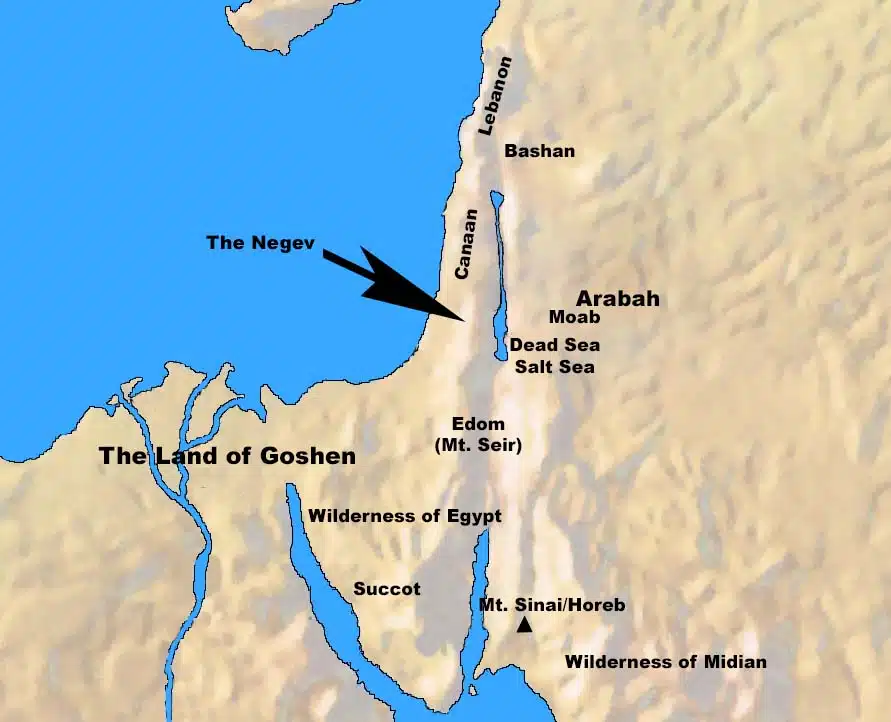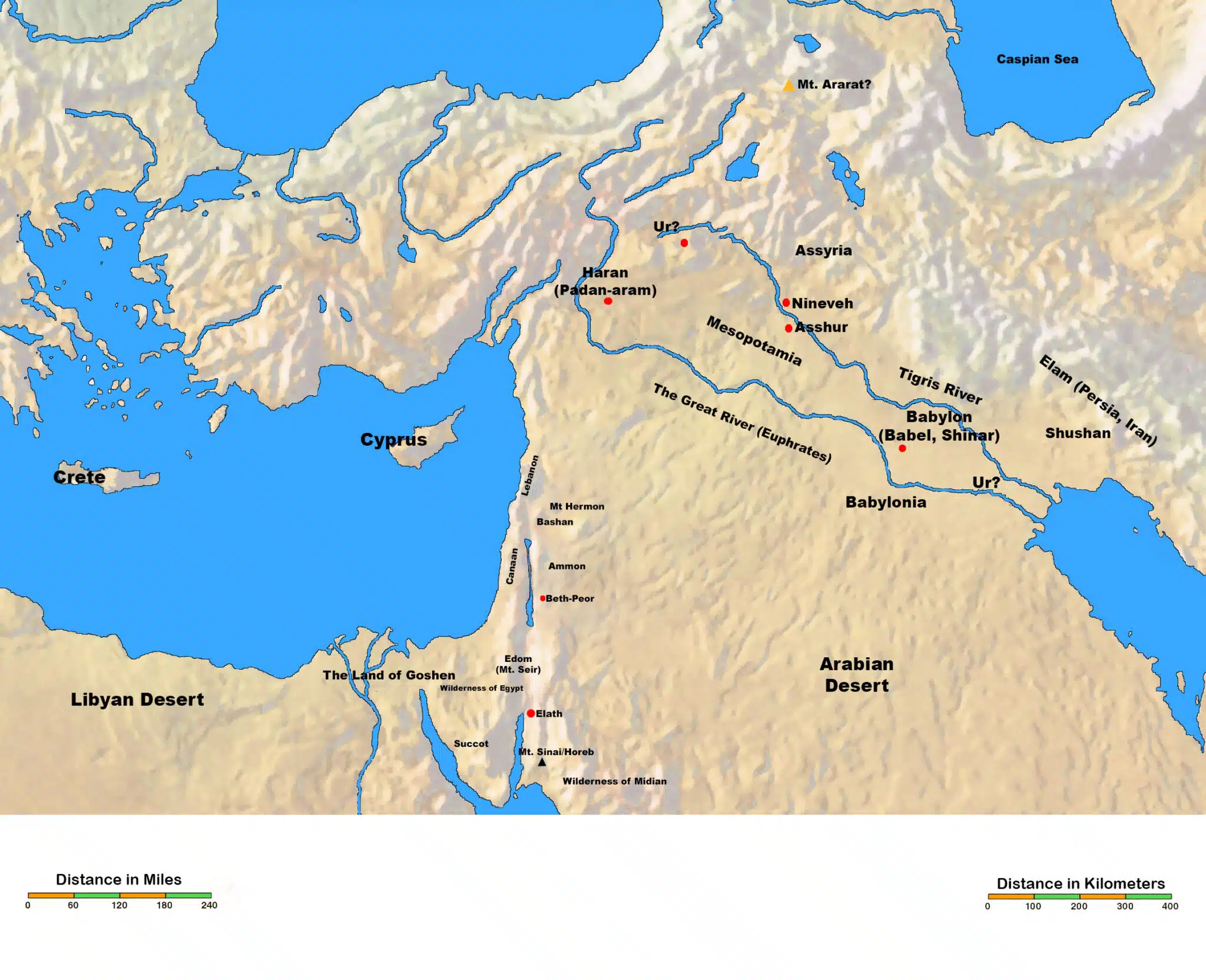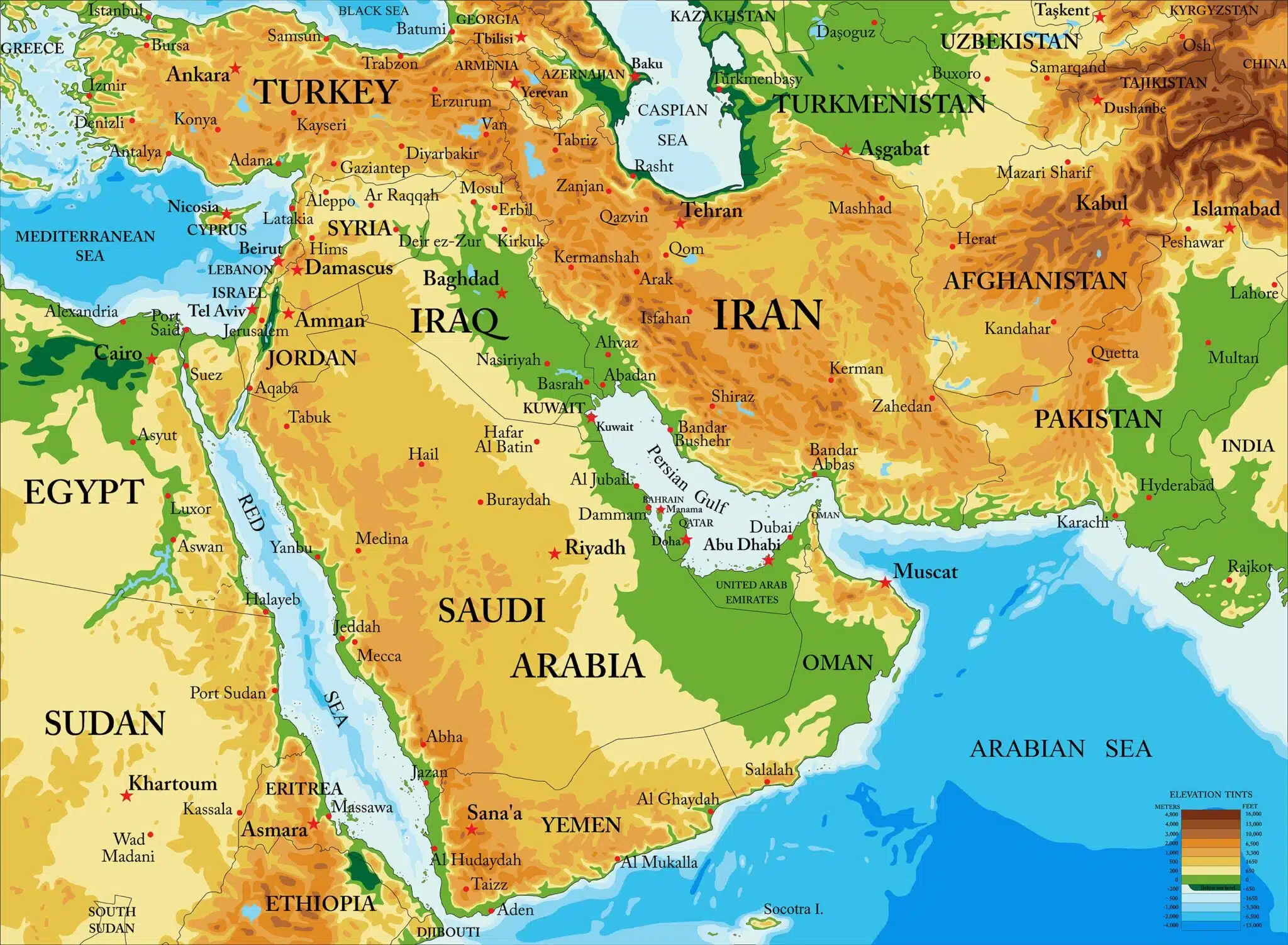There is a great famine in the land, so Abram goes to Egypt.
Abram proceeded from there to the mountain on the east of Bethel. Bethel (house of God) was 20 miles south of Shechem and 10 miles north of Jerusalem. Bethel was once called Luz (Genesis 28:19). It was an important town in the history of God’s ancient people and was one of the highest places in Canaan. Presumably, Abram pitched his tent wherever he went, therefore the mention of it here suggests that he settled near Bethel for some time. He built an altar to the Lord at Bethel too.
Abram again moves southward continuing toward the Negev. The Hebrew word Negeb means “south country.” The Negev is the area lying between the hills of Judah and Kadesh-Barnea. It roughly marks the southern border of Canaan (Numbers 34:3-5), so in traveling there Abram found himself at the southern border of the promised land. The brief itinerary of Abram described in verses 5-9 takes him from the northern to the southern border of the land. He not only sees what has been promised to him; he walks through it, and he lives and worships in it.
Abram went down to Egypt as he traveled from the hill country of Canaan to the lower-lying Egypt. This is the first mention of Egypt as a factor in Israelite history. To sojourn means to set up temporary residence. A “sojourner” is a person who lives among a population with whom he usually has no family affiliation and does not have full citizenship rights. The famine was severe in the land so Abram journeyed into Egypt, to stay there until the famine was over. Egypt’s food supply was usually plentiful because it depended on the Nile’s water supply and not rainfall alone. In ancient times, they did not have long-term storage or effective transportation and distribution of food like we enjoy today. The realities of nature and of the landscape can be harsh.
Perhaps this was a test of Abram’s faith. God had promised to care for him in this land that was chosen. It is possible that Abram chose to go to Egypt because he failed to trust God’s provisions in Canaan. Faith sometimes has its lapses. It is remarkable that we get to see God’s point of view about Abraham on so many points, for our instruction and benefit. But on this point, we are not instructed.
Biblical Text
8 Then he proceeded from there to the mountain on the east of Bethel, and pitched his tent, with Bethel on the west and Ai on the east; and there he built an altar to the Lord and called upon the name of the Lord. 9 Abram journeyed on, continuing toward the Negev. 10 Now there was a famine in the land; so Abram went down to Egypt to sojourn there, for the famine was severe in the land.
Check out our other commentaries:
-
Romans 2:25-27 meaning
Just and righteous living comes through living by faith. The Jewish people, who break the law and are circumcised, are the same as those who...... -
Galatians 5:1-6 meaning
These Galatians believers have replaced the freedom found in Christ with a slavery to the law. They have ignored God’s grace and have replaced it...... -
Ecclesiastes 1:2 meaning
Solomon uses an enigmatic metaphor to introduce the intention of the book: attempting to reconcile man’s search for meaning with the practical limitations around him....... -
Ecclesiastes 2:1-2 meaning
Solomon evaluates pleasure as a means to satisfy man’s compulsion for understanding, and finds that it is a dead end....... -
Ecclesiastes 11:1-5 meaning
God determines what will be and His work is beyond our ability to control or understand. Accepting reality, the best we can do is to......





